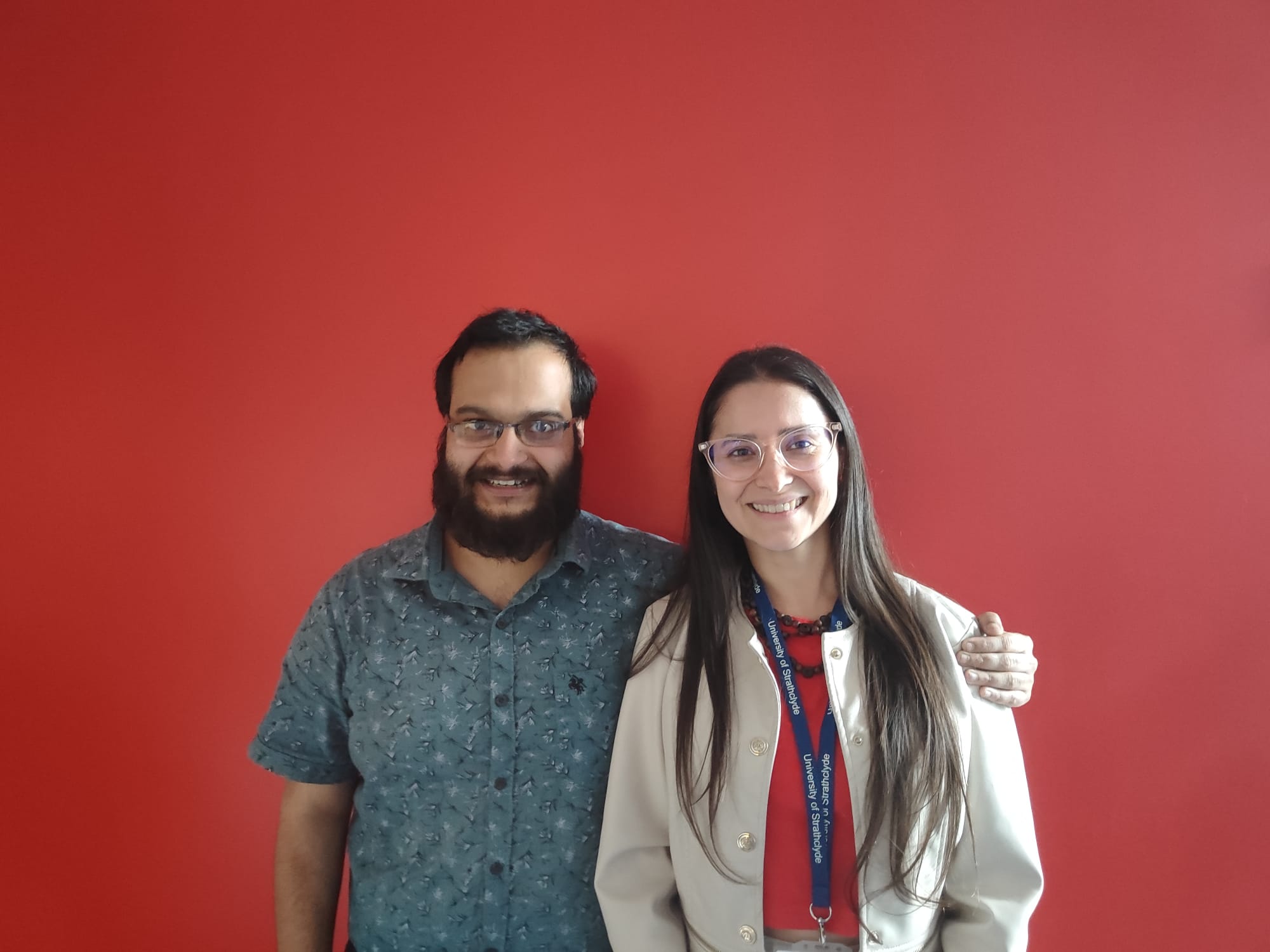Unlocking opportunities: academic events are key for PhD impact
By Manikantha Nataraj, Bianca Pistorio - Posted on 10 July 2024
Bianca Pistorio and Manikantha Nataraj are PhD students who have benefited from attending an international conference. Here, they share why participating in such events is crucial to a PhD student's development.
As third-year PhD candidates at the Department of Work, Employment, and Organisation (WEO) at Strathclyde Business School, we recently had the privilege of attending the 42nd International Labour Process Conference, hosted by the University of Göttingen in Germany this April.
We are excited to share our experiences and insights from this prestigious event, which is renowned for its cutting-edge research and dynamic debates on the sociology of work, labour process theory, industrial relations, organisational analysis, and management studies.
The three-day conference brought together a diverse array of participants, including academicians, policymakers, practitioners, activists, students, and early career researchers from across Europe, the Americas, and Asia. It was an invaluable opportunity to showcase our academic progress and engage with leading experts in our field.
Participating in academic events, especially on an international scale, is crucial for the career development of academic researchers. The process of submitting an abstract, preparing a paper and presentation slides, and undergoing peer review helps hone fundamental skills. These experiences are pivotal for engaging with an academic audience, receiving constructive feedback, and fostering professional growth.
Beyond these immediate academic skills, large conferences offer a unique insight into organisational processes. Observing how institutions manage events, from guest accommodations to session structuring, provides practical knowledge that can be applied to our future academic and professional endeavours.
One of the most significant advantages of attending international conferences is the opportunity to build a professional network. For PhD candidates, networking is vital as we transition from doctoral studies to future career opportunities. Engaging with professors, authors, and researchers whose work influences our own can lead to collaborations and fresh insights into our research projects. We experienced first hand how institutional partnerships formed at conferences can offer critical international support for our research.
Another crucial skill developed through participation in these events is securing support to publicise and fund our research. Learning how to find financial resources and apply for funding is essential, especially for those conducting independent research without external funding. In 2024, both of us received support from the WEO Departmental Fund and the PGR Travel Award from Strathclyde, enabling us to attend conferences. These grants, while internal, required us to articulate the benefits of conference attendance and justify our expenses, thereby enhancing our budgeting and grant-writing skills. This process often involves matching funding contributors, requiring creativity and innovation, as well as navigating bureaucratic procedures.
The support and encouragement from Strathclyde Business School have been instrumental in our career development. Attending such a prestigious event as the one in Germany provided us with unparalleled opportunities for networking, professional growth, and academic recognition. Interacting with leading experts and peers in our field not only enhanced our research skills but also opened doors to future collaborations and career advancements.
We extend our heartfelt gratitude to Strathclyde Business School for their unwavering support. This experience has significantly enriched our understanding of contemporary work dynamics and strengthened our commitment to advocating for meaningful change in the workplace. The support we received has been pivotal in our career development and has expanded our reach within the academic community.
Based on these experiences and benefits, we encourage our fellow PhD colleagues to engage in similar opportunities during their doctoral journey. The skills and connections gained are invaluable assets in the ever-evolving landscape of academic research and professional development.
Find out more about PhD study on our webpage










